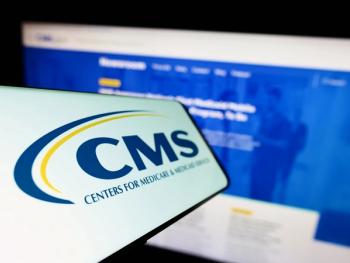
FDA Approves First-Ever Cell Therapy Treatment for Rare Progressive Eye Disease
Encelto is small, semi-permeable capsule implanted in the eye that contains allogeneic retinal pigment epithelium cells genetically engineered to produce specific therapeutic proteins. It will be available in June 2025.
The FDA has approved the first – and only – treatment, a cell therapy, for macular telangiectasia type 2 (MacTel), a rare neurodegenerative disease that causes irreversible vision loss.
The treatment, Encelto (revakinagene taroretcel-lwey), is an encapsulated cell therapy, developed by
“This is a historic moment for the MacTel community,” said Thomas M. Aaberg Jr., M.D., chief medical officer at Neurotech, in a
The approval was based on results from two phase 3 trials, which demonstrated that after placement of the implant, Encelto slowed the loss of macular photoreceptors in MacTel patients over 24 months. Trial data showed functional benefits beyond preserving photoreceptors. The treatment group maintained reading speed while the control group experienced a decline of 14 words per minute. Retinal sensitivity measurements showed that loss in the sham group was 45% greater than in the treated group, closely correlating with photoreceptor preservation.
MacTel is caused by the dilation of the tiny blood vessels around the fovea in the center of the macula. It causes gradual central vision loss, blurriness and distortion, although peripheral vision remains intact. It typically emerges after age 40 and affects both eyes.
The exact cause is unknown, but it is linked to neurodegeneration, with potential risk factors including aging, smoking, diabetes and hypertension. One
Diagnosis relies on imaging techniques like fluorescein angiography and optical coherence tomography.
Encelto uses a small, semi-permeable capsule containing allogeneic retinal pigment epithelium (RPE) cells genetically engineered to produce specific therapeutic proteins for targeted disease treatment.
The capsule is surgically implanted in the eye by an ophthalmologist. Once in place, the membrane allows nutrients to enter while permitting therapeutic proteins to travel to the retina, protected from the body's immune system.
The most common adverse reactions in trials included conjunctival hemorrhage, delayed dark adaptation, foreign body sensation and eye pain.
“Now with an FDA-approved treatment, I am confident that Encelto will be able to meaningfully slow disease progression for many patients affected by MacTel, allowing them the opportunity to preserve more functional vision over time,” said Charles C. Wykoff, M.D., Ph.D., of Retinal Consultants of Texas and a clinical investigator in the trials, in the news release.
Neurotech expects Encelto to be available to U.S. patients starting in June 2025.
Newsletter
Get the latest industry news, event updates, and more from Managed healthcare Executive.























